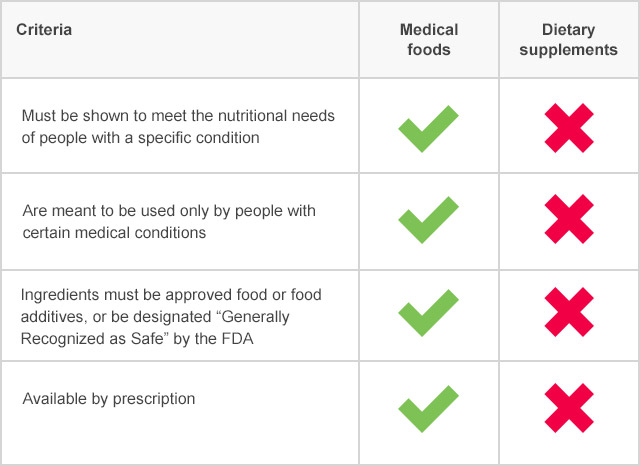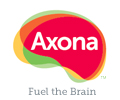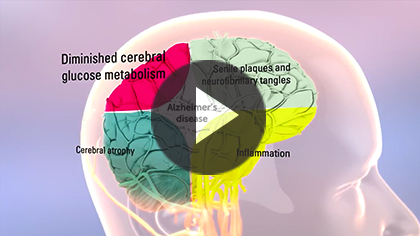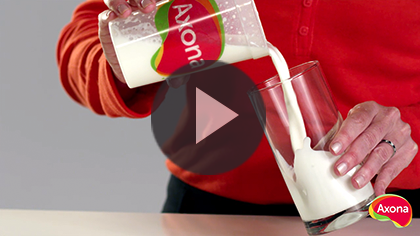What is a medical food?
Medical foods can be used by people with diseases, including Alzheimer’s1,2
 As defined by the Food and Drug Administration (FDA), medical foods are created to be used for the dietary management of a condition. The condition must have specific nutritional requirements that have been established by scientific research. Medical foods have to be used under the supervision of a doctor and can be taken by mouth or through a feeding tube.
As defined by the Food and Drug Administration (FDA), medical foods are created to be used for the dietary management of a condition. The condition must have specific nutritional requirements that have been established by scientific research. Medical foods have to be used under the supervision of a doctor and can be taken by mouth or through a feeding tube.
It’s important to know that medical foods are not a replacement for prescription drugs, but they can still help people with various diseases and conditions, including Alzheimer’s. It might be comforting to learn that medical foods have a long history of helping people.
How long have medical foods been around?3,4
Medical foods may sound like they are a new development, but they have actually been around for a long time in the United States.
1941
FDA created its first definition for medical foods, calling them Foods for Special Dietary Use (FSDU)
1940s
Special foods for seriously ill people created
1950s-1972
Medical foods were still considered drugs by the FDA
1972
The FDA started calling Lofenalac™, which had been considered a drug, an FSDU
1973
The term “medical food” was coined. FSDU no longer used to describe these types of therapies
1988
The official definition of medical food is created
1990
A new law creates the criteria for medical foods, defining the category separate from drugs and dietary supplements
1990s-2000s
New medical foods for different conditions created
How are medical foods different than dietary supplements?1,2,4
Medical foods are different from dietary supplements in several very important ways. It’s good to understand these differences as you explore the use of medical foods for your loved one.

What does this mean for my loved one?
It means that medical foods may be able to help your loved one. For some people with mild to moderate Alzheimer’s disease, medical foods have provided benefits. Talk to the doctor to see if adding a medical food as part of Alzheimer’s management is right for your loved one.


